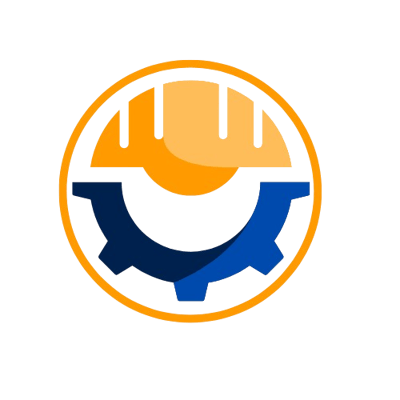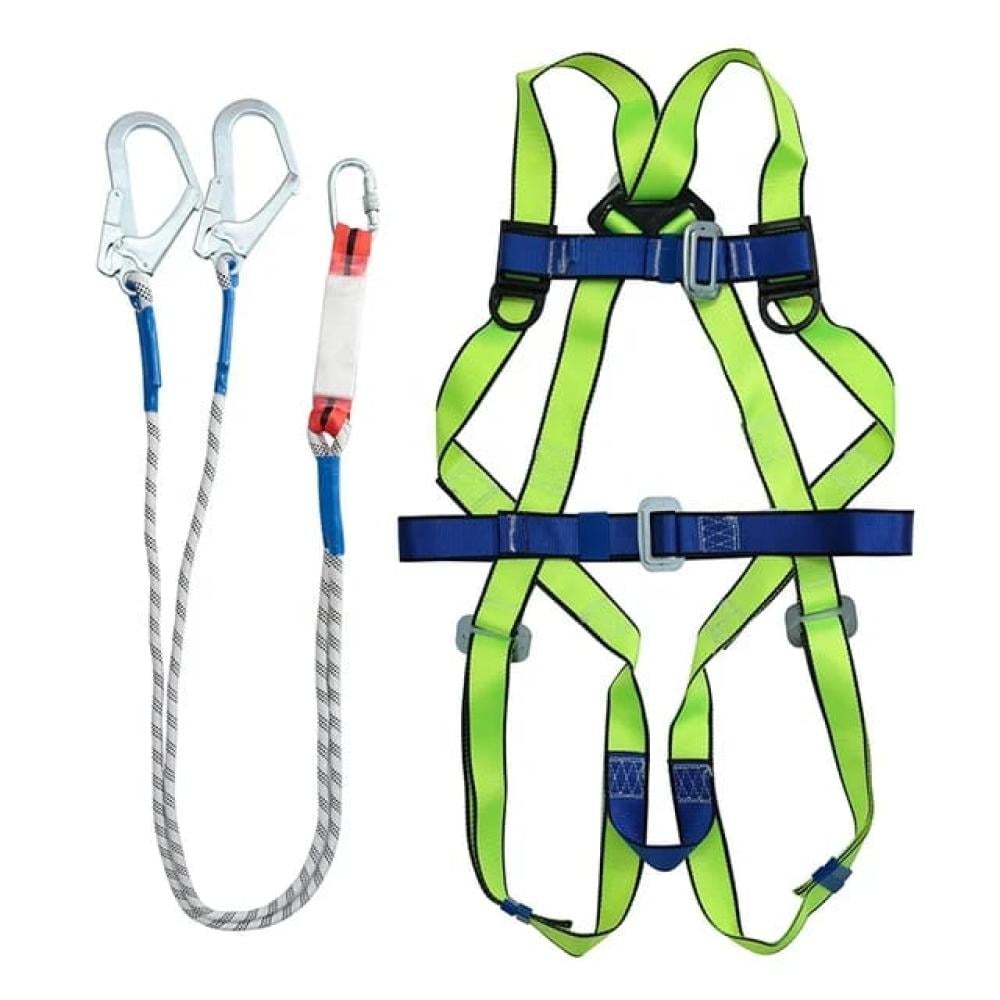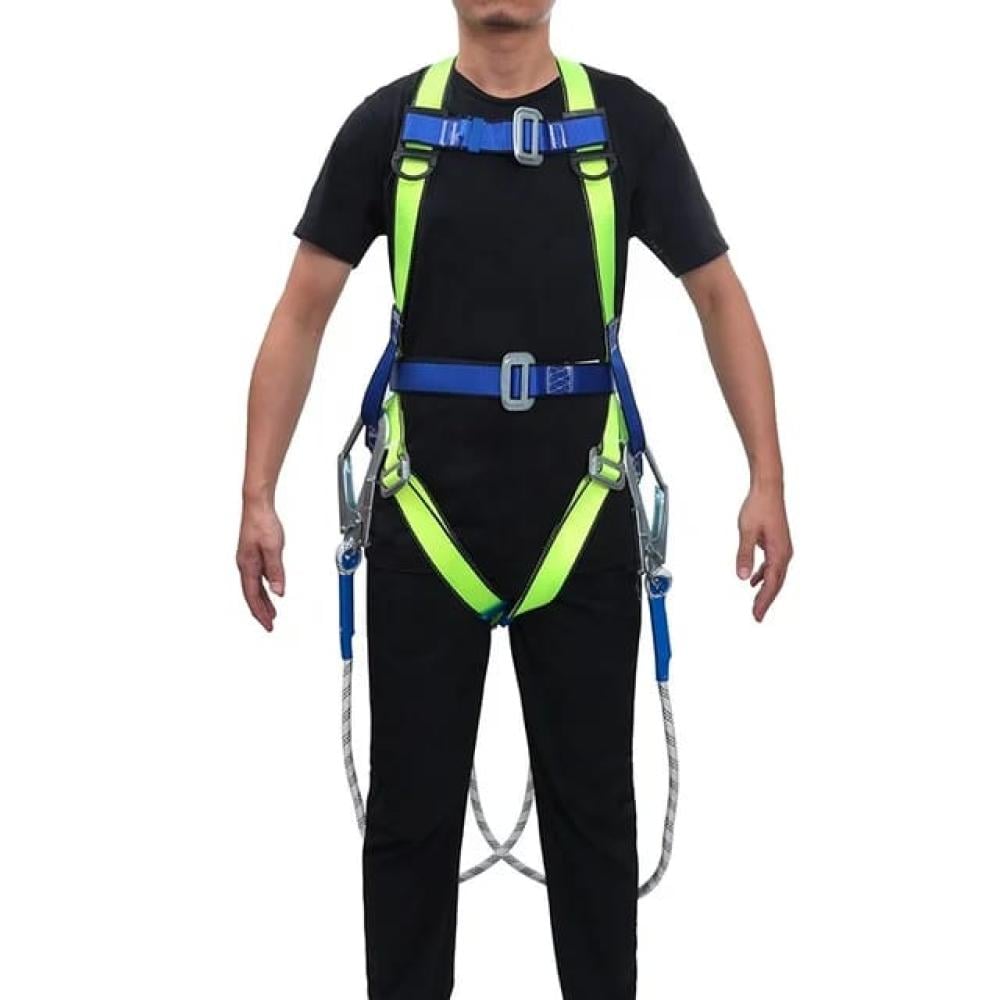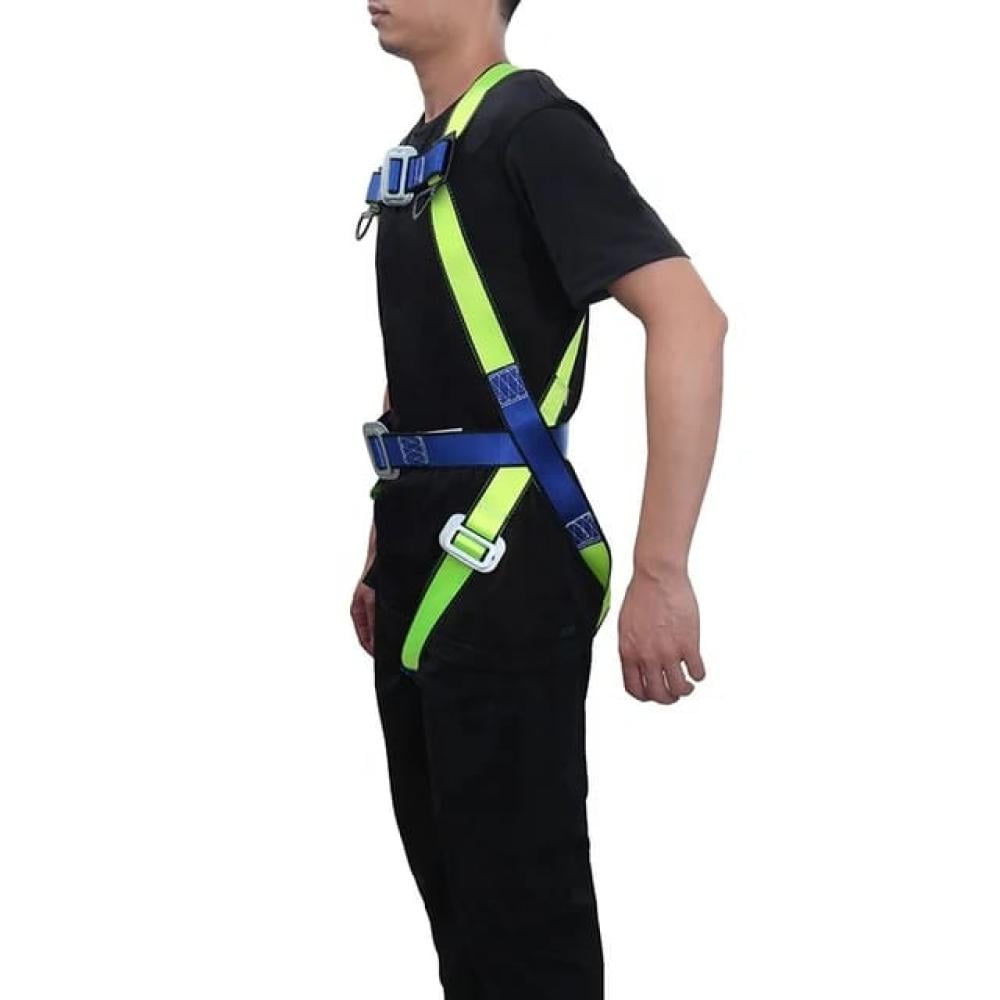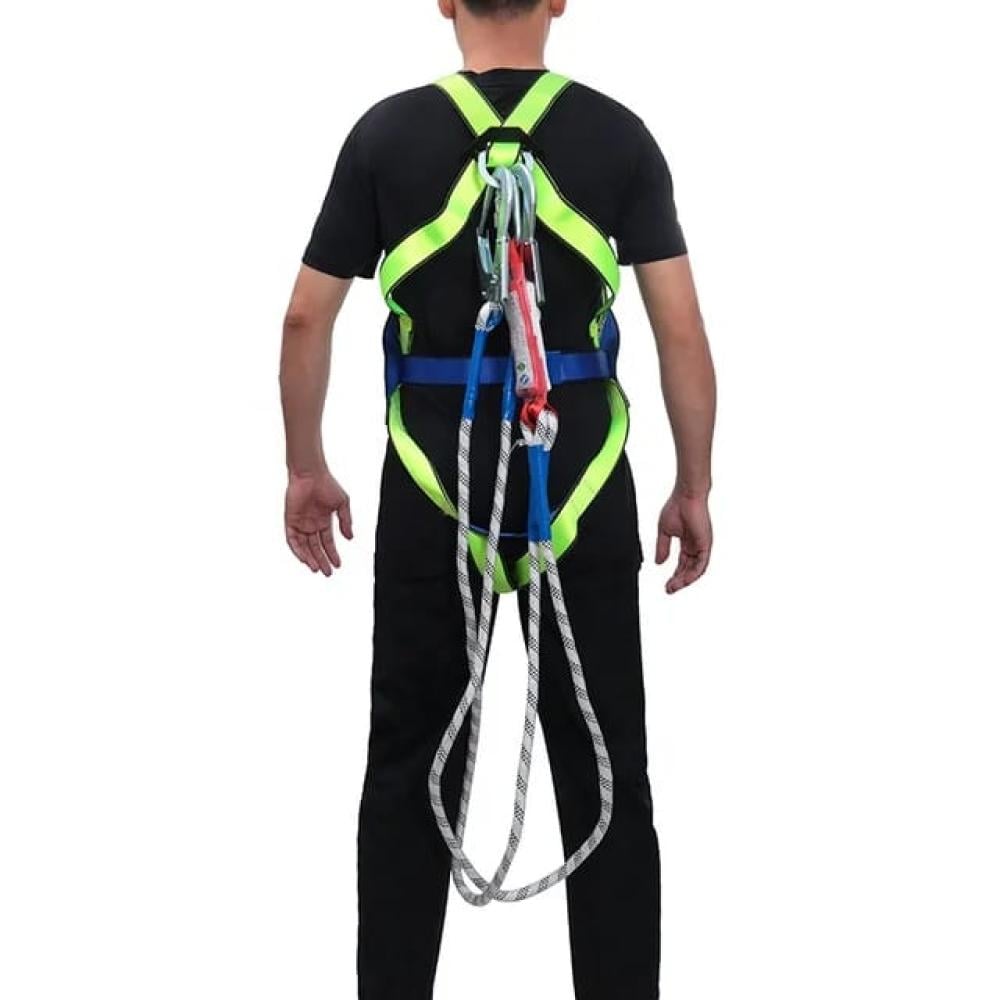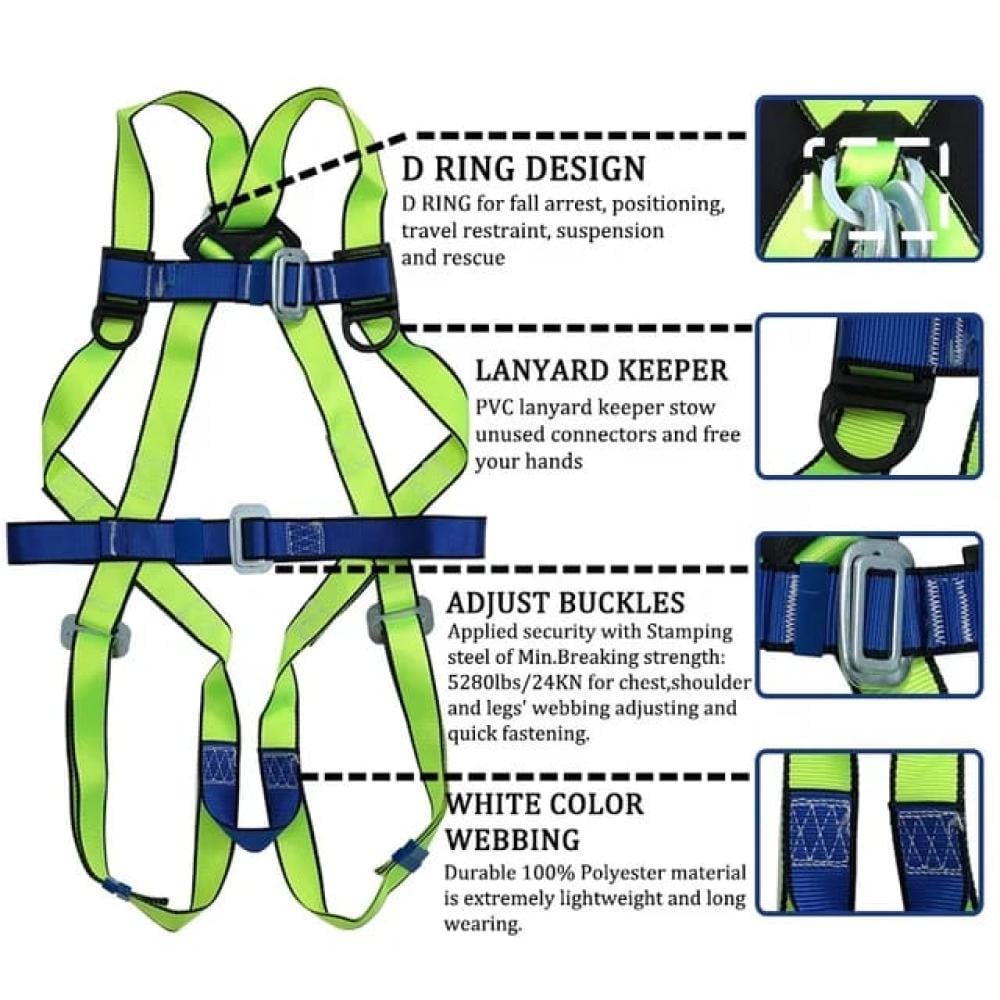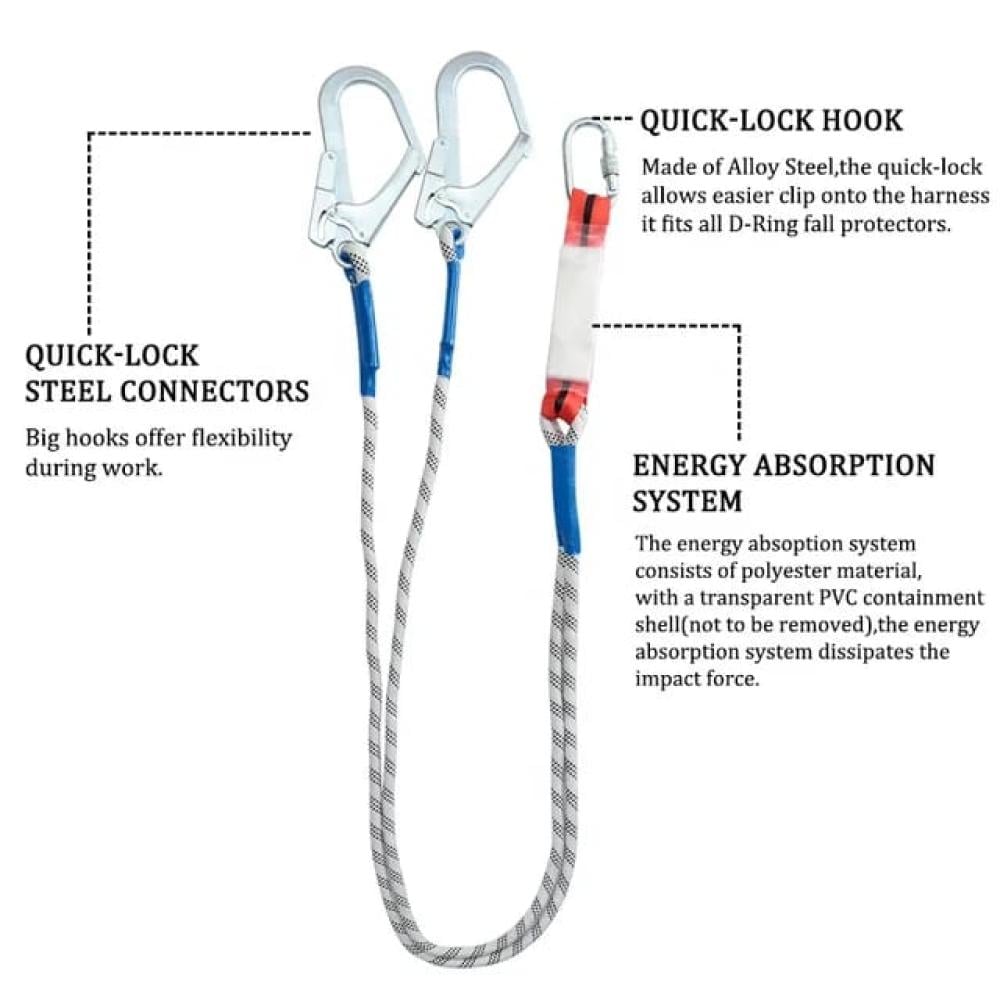- Construction Full Body Safety Harness for Roof Work at Height
- Our safety harness ensures the safety and well-being of workers through setting standards and offering training, outreach, education, and assistance.Great for use in Construction, Demolition, Climbing, Hunting, Roofing, Emergency, Landscaping, Security and etc.
- Product descriptions:
- Product Name:Full Body Harness
- Place of Origin:China
- Brand:DX
- Material:100% Polyester
- Color:Blue combined with Green
- Tearing Test:25 KN
- Maximum Weight Capacity:140 kg/310 lbs
- Fall Protection Height:6 feet
- Application:Construction, Demolition, Climbing, Hunting, Roofing, Emergency, Landscaping, Security
- Product name:Construction Full Body Safety Harness for Roof Work at Height
- Packaging and delivery
- Packaging Details:10pcs/carton
- Selling Units: Single item
- Single package size: 25X23X11 cm
- Specification:
- Fall Protection Safety Harness
- D Ring Design:
- D RING for fall arrest, positioning, travel restraint, suspension and rescue.
- Lanyard Keeper:
- PVC lanyard keeper stow unused connectors and free your hands.
- Adjust Buckles:
- Applied security with Stamping steel of Min.Breaking strength : 5000 lbs/25 KN PT 24 for chest,shoulder and legs' webbing adjusting and quick fastening.
- White Color Webbing:
- Durable 100% Polyester material is extremely lightweight and long wearing.
- CE 0082 / EN362:2004/A
- How to use the "industrial" safety belt
- 1. When fastening the belt, adjust the buckle correctly and the "D" rings in position on the back side of the waist.
- 2. The hook leading to the safety belt should be hung as high as possible
- 3. The light rope should not be tied to any sharp-angled object
- 4. Do not use the lifeline to support yourself (for example, you can tie it to a pole to make a "U" tension when working on an electric pole, etc.)
- 5. Do not use a safety belt that has been damaged by a collision, even if no difference in its external appearance is identified.
- 6. Any of the safety belts with the following defects should not be used.
- A. Poor operation of the safety cover of the hook.
- B. Poor operation of the buckle lock
- C. Worn lifeline
- E. Worn threads in the sewn part of the belt.
- D. Bending lifeline.
- Deformed or cracked belt.
- 7. The following maintenance is recommended.
- A. The dirty belt should be washed with detergent and dried under indirect sunlight
- B. The seat belt, especially the rotating or deformed part, should be lubricated once or twice a month using a full spindle or similar. C. Do not keep the seat belt with sand.
